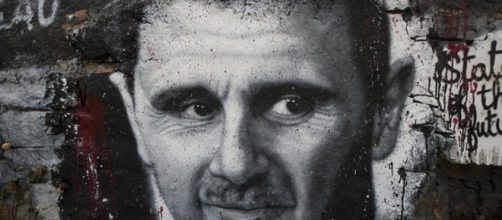The conflict in Syria approaches its seventh year and the discussions about the country's future abound. Numerous options exist, mostly involving power transition from the Syrian president Bashar al-Assad. The power transition is included in the Geneva negotiations involving various sides. Within these ongoing talks, many would like to see Assad gone. Others think he might stay to keep the order. Some regard his stay horrible, others see it as the best option available or the least of all bad options.
Assad has strong support behind him
Assad enjoys quite big support, not only from Moscow and Tehran but also among the Syrians itself.
There are those who don't necessarily support his government, but they are not actively fighting against it. Most of them are afraid of alternatives and other groups that may become violent and repressive if they gain power in Damascus.
Support for the current rule comes from unusual sources as well. Years after fighting Assad and his army, hundreds of fighters in the Syrian Free Army now ask for amnesty and want to join the Syrian national army, especially in the Golan Heights. This is a very sensible area, on the border with Israel. Some extremist groups, such as Ahram al-Sham and Jabhat Fattah al-Sham, operate here, endangering the Syrian opposition that is sandwiched between terrorist and forces loyal to Damascus.
Thus, they tend to swing allegiance to the government and seek protection from assaults coming from all sides.
If Assad stays, would the causes of war vanish? Can all the fighting for resources, territory and identity just disappear? Assad can stop another extreme quantities and levels of violence, but tensions shall remain. Based on these tensions, neighbouring countries can incite new conflicts in Syria and also in Iraq. This is especially true for Saudi Arabia and its allies. They want to stop the creation of something that Jordanian King Abdullah II calls „Shi'ite arch“. But that is not really happening; precisely because of the multi-ethnic and multi-religious society, Syria is a strongly secular state.
There are no ideas of establishing a religious state akin to the Islamic Republic of Iran, which is a staunch ally of Damascus. Iraqi Shi'ite leaders, including the Shi'a clergy in Najaf, condemn any Shi'a militia fighting in Syria. And if Shi'ite arch is dangerous, why there is not a single Shi'a terrorist group that world is fighting against?
Assad: What is his future?
But if Assad goes, what can happen? Is there a chance for another authoritarian leadership? How will the new government keep the peace in the divided country? And what does it mean for Syrian citizens who fled to Turkey, Lebanon, Jordan, and Europe? If Geneva negotiations do bring peace, it is quite certain it will be fragile.
National reconciliation will be a very long and challenging process. Millions of Syrians will try to stay in other countries, rather than coming back to the ruined country with a dire need for medical service, education, jobs, and psychological treatments.
If Assad stays even temporarily in power, he needs to acknowledge the existence of numerous organisations and NGOs trying to get their country back on course. The developmental projects and recreation of Syrian society cannot follow the beaten track of Assad dynasty. If he wants to pose as a statement, Assad should give more freedom. At the same time, he needs to control the whole Syria in order to keep it together as a sovereign nation. To do that, he would need skills of Macchiavelli.

